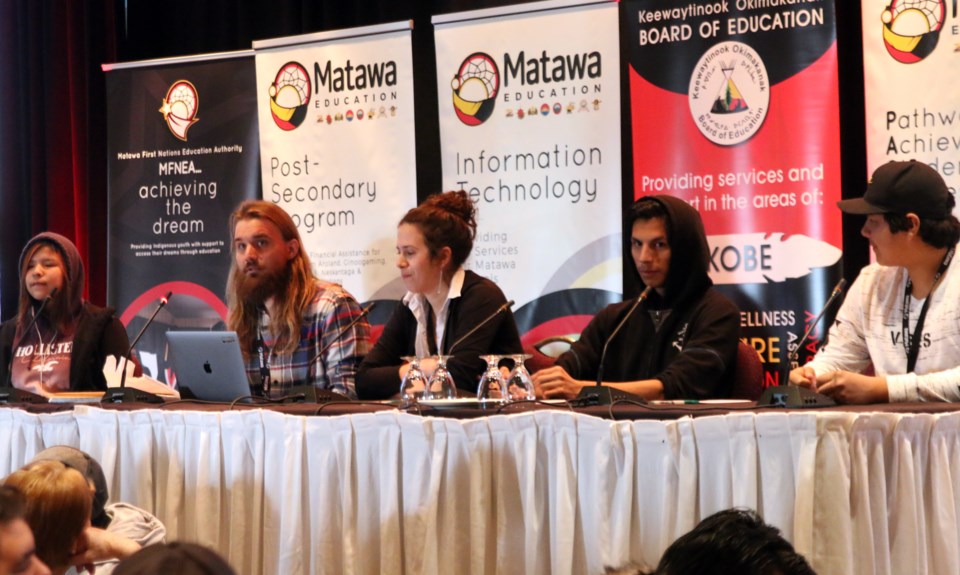THUNDER BAY - For teachers working in remote First Nation communities, there can be a sense of isolation, not only geographically, but from other educators as well. Though many teaching in the north face similar challenges and coming together can create opportunities to find solutions.
“I work in a fly-in, so we are very isolated,” said Marylyn Braunberger, a special education teacher in Webequie First Nation. “We are a really good group amongst ourselves, but it’s really nice to meet with people from all over because we understand we have shared difficulties and that supports us because we are all working on the same things.”
This week Matawa Education and the Keewatinook Okimakanak Board of Education are hosting the 13th Annual Education Conference in Thunder Bay.
The two-day conference, which opened on Wednesday, will focus on the theme of inspiring generations and includes nearly 500 delegates of teachers, staff, education workers, and community members from Matawa communities.
“With the geography of the Matawa region, a lot of our schools are very remote and fly in only and Thunder Bay is the hub,” said Nick Shaver, Pathways to Achieve Student Success program coordinator with Matawa Education.
“So bringing them to Thunder Bay allows them to network, which you don’t really see otherwise. They are isolated, literally isolated. So having everyone come to the conference in Thunder Bay gives them a chance to network. It gives them an opportunity to get professional development.”
The conference will include workshops in the areas of cultural curriculum, land-based and outdoor education, First Nation language revitalization tools and techniques, special education, teaching strategies for numeracy and literacy, and mental health and wellbeing.
“One of the big things we are hoping is them getting a lot of hands on experience or skillsets that they can take back to their school immediately and supporting their students immediately,” Shaver said, adding teachers can also take different certification courses at the conference relating to non-violence crisis intervention and safe talk relating to suicide supports.
“Getting validation in what they are doing, getting support in what they are doing, being able to feel like they are supported also by having professional development, by having these opportunities to network and meet with other teachers,” Shaver said.
Education in remote First Nation communities continues to face many challenges, Shaver said, including chronic and historic underfunding and retaining experienced staff.
“In the public system in Ontario where you have teachers who have been around for 15 to 20 years, a lot of the teachers here are one to five years,” he said. “So that has an impact on the quality of the education. It’s not a reflection on the quality of the teacher, but experience does help in a lot of cases.”
For Braunberger, who has been teaching for 13 years, including six in Webequie, finding solutions to meet the unique needs of each community will be difficult.
“Everybody is together, then you can address the unique needs of the community,” she said. “It’s hard to say how exactly, but you have the confidence that everyone is dealing with this, so you can go to other people but at the same tie look at what is unique for your community.”
Braunberger said in her six years teaching up north, she has already seen significant changes, particularly in the area of special education thanks to Jordan’s Principle. But more work still needs to be done and she is hopeful teachers working together at the Matawa Education Conference can keep finding new ways to make things better.
“The big thing is building relationships, not only with the kids, but with the families,” she said. “It is my home. I live up there 10 months a year. So you build those relationships. So a lot of the difficulties. You understand kids better, you understand the dynamics better, and solutions are easier to find and you build trust between home and school.”
